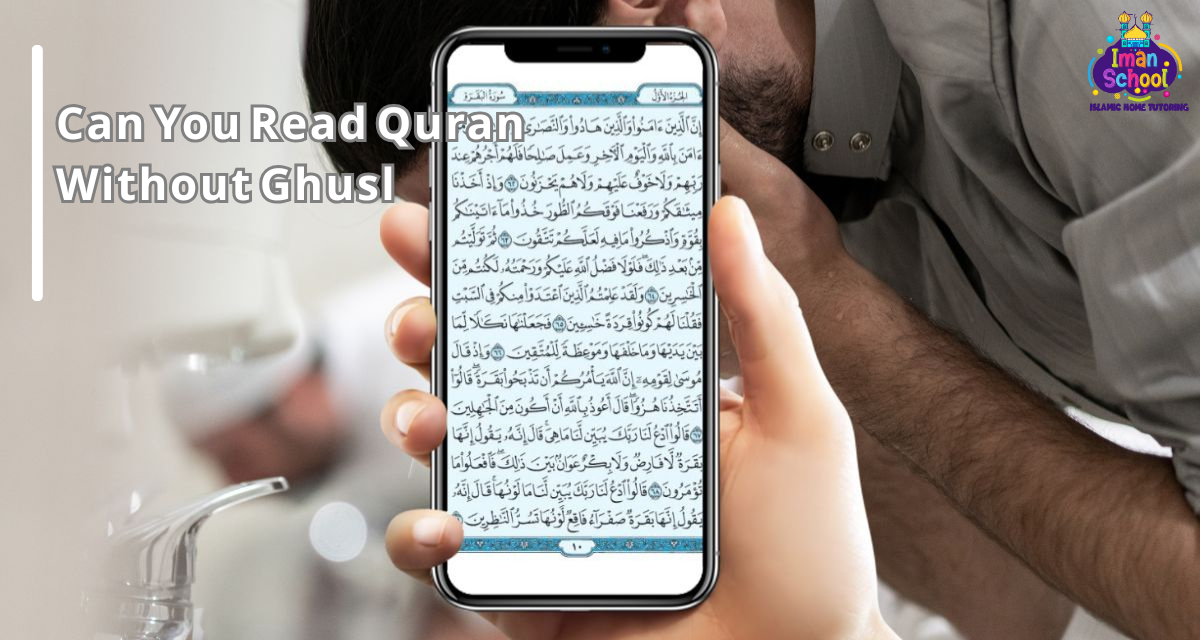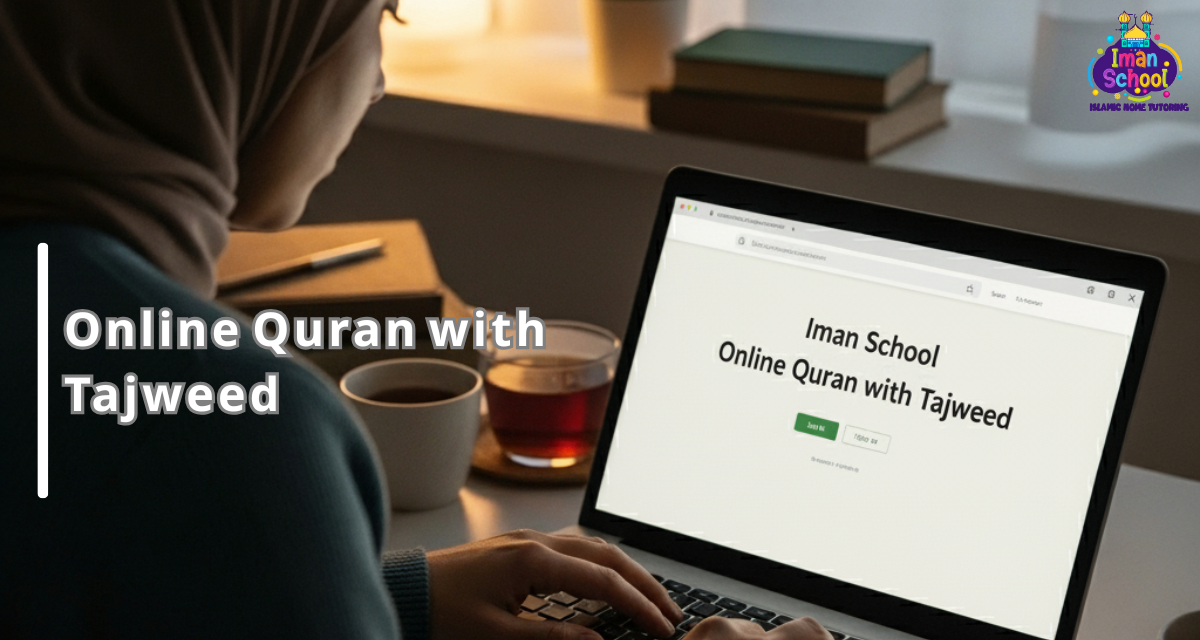The Holy Quran, as the direct word of Allah, holds immense sanctity in Islam. Muslims strive to approach it with the utmost respect and reverence, which often brings questions about states of purity. One of the most common and crucial queries among Muslims is: can you read Quran without Ghusl? Understanding the various states of purity and their implications for interacting with the Quran is vital for every believer. This article aims to clarify the rules surrounding Quran recitation rules and the necessity of Ghusl (ritual major bath) or Wudu (ritual minor ablution) when engaging with the Divine text.
Understanding "Ghusl" and Its Purpose
To answer "can you read Quran without Ghusl," it's essential to first understand what Ghusl is. Ghusl is a major ritual purification involving a complete washing of the entire body. It is required to remove states of major impurity (Janabah) before performing certain acts of worship.
When is Ghusl obligatory? Ghusl becomes obligatory after:
-
Sexual discharge or intercourse.
-
Menstruation (Hayd) for women.
-
Post-natal bleeding (Nifas) for women.
-
Conversion to Islam (in some cases).
-
Death (for the deceased, before burial).
The broader concept is what is Taharah in Islam, which encompasses both major (requiring Ghusl) and minor (requiring Wudu) ritual purifications. These states of purity are conditions for certain acts of worship to be valid.

Uncover everything you need to know about: Human Rights in Islam
Reciting Quran While in a State of Major Impurity (Janabah)
Now, let's address the core question: can you read Quran without Ghusl, specifically when in a state of major impurity (Janabah)?
The mainstream scholarly opinion is that it is generally not permissible to verbally recite the Quran while in a state of Janabah (major impurity), i.e., without having performed Ghusl. This applies whether you are reciting from memory or looking at a physical Mushaf. This means that "Reading Quran in Janabah" is typically not allowed. The same rule applies to women during menstruation or post-natal bleeding, who are considered in a similar state of major ritual impurity. Therefore, if you are asking "Is it haram to read Quran without Ghusl?" in the context of verbal recitation while in Janabah, the common answer is yes, it is prohibited.
However, it is important to distinguish this from merely listening. Is Ghusl required to listen to Quran? No, you are permitted to listen to Quranic recitation even while in a state of major impurity, as listening does not carry the same purity conditions as verbal recitation.
Learn more about: Does a woman have to wear hijab when reading quran
Touching the Physical Mushaf (Copy of the Quran) without Ghusl
Another related but distinct question is about physical contact with the Quran: "Do I need Ghusl to touch Mushaf?" or "Touching Quran without Ghusl."
The vast majority of scholars hold that one must be in a state of ritual purity to touch a physical Mushaf. This is based on the Quranic verse: "None shall touch it except the purified." (Quran 56:79). This means that if you are in a state of Janabah (major impurity) you must perform Ghusl before touching a physical copy of the Quran.
Similarly, if you are in a state of minor impurity (e.g., after using the restroom) you must perform Wudu before touching it. This is part of the broader Islamic purity rules for Quran and underscores the reverence for the sacred text. These "Rules for touching the Quran" are crucial for showing due respect. Thus, if you are in a state where Ghusl is obligatory, you cannot touch the physical Mushaf without first performing Ghusl. This is directly related to Purity for reading Quran when involving physical contact.
Explore the benefits of: Best English Translation of Quran
Special Cases and Exceptions
While the general rulings regarding "can you read Quran without Ghusl" are clear, some specific scenarios require further clarification.
-
Can menstruating woman read Quran? This is a highly debated topic among scholars. The majority view aligns with the ruling for Janabah, stating that a menstruating woman should not verbally recite the Quran. However, some contemporary scholars permit recitation from memory for the purpose of learning, teaching, or seeking protection (e.g., daily invocations), citing that menstruation is a natural state, not a choice. All agree that she cannot touch a physical Mushaf without a barrier (like gloves). This highlights the nuances within Quran recitation rules.
-
Reading Quran on phone without Wudu: This is generally permissible. Since a phone or tablet displaying the Quran is not considered a physical Mushaf, the rules for touching do not strictly apply. This implies that one can also view the Quran on a phone without Ghusl, though verbal recitation in a state of major impurity remains prohibited according to the majority.
States of Purity for Other Acts of Worship
Understanding purity rules for the Quran often leads to questions about other acts of worship. For example, "Can I pray without Ghusl?" The answer is a clear no. Performing Salat (prayer) requires a state of complete ritual purity. If one is in a state of major impurity (Janabah), Ghusl is absolutely mandatory before prayer. Similarly, for minor impurity, Wudu is required. This underscores that the rules for Purity for reciting Holy Quran can differ from other acts like prayer or touching the Mushaf.
Get to know more about: Family in Islam
Online Fiqh Courses
The intricacies of Islamic purity rules (Taharah) and their application to daily acts of worship, including answering "can you read Quran without Ghusl," are part of the vast field of Fiqh (Islamic jurisprudence). Understanding these rules requires reliable knowledge. Online Fiqh classes offer an excellent opportunity to delve into these topics comprehensively. For those seeking to learn Fiqh online and understand the practical rulings of Islam, Iman School provides high-quality Islamic jurisprudence online courses.
We offer Fiqh courses for beginners as well as advanced learners, making it easy to study Fiqh from home. Our programs are designed to help you understand Fiqh online, covering essential areas like purification, prayer, fasting, and other aspects of daily Muslim life. As a reputable online Fiqh academy, Iman School provides structured Fiqh lessons online to clarify such important questions as "can you read Quran without Ghusl" and other Islamic purity rules for Quran. These are among the best online Fiqh programs for comprehensive knowledge.

The Importance of Seeking Knowledge and Clarity
These purity rules are not arbitrary restrictions; they are divinely ordained guidelines designed to instill respect for the sacred and to foster a deeper connection with Allah. They signify the importance of approaching acts of worship in a state of reverence and cleanliness. Understanding the Fiqh of Quran recitation helps one perform acts of worship correctly and gain maximum reward. When unsure about "can you read Quran without Ghusl" or any other matter, seeking knowledge from reliable sources and qualified scholars is paramount.
Dive into: Islamic Ethics
Debunking Common Misconceptions
There are several misunderstandings regarding purity and Quran recitation that often lead to confusion when asking "can you read Quran without Ghusl."
1- The Myth of "Always Needing Wudu/Ghusl to Recite"
A common misconception is that one always needs Wudu or Ghusl to recite the Quran. This is not entirely accurate. While Wudu is highly recommended for all acts of worship and a state of major impurity (Janabah) prohibits verbal recitation, one can recite Quran from memory without Wudu if they are not in a state requiring Ghusl. However, for a physical Mushaf, Wudu (and Ghusl if needed) is required for touching. This distinction helps clarify "Reciting Quran without Wudu" vs. "Ghusl before reading Quran."
2- Understanding Different Schools of Thought
While the majority opinion is clear on Janabah and Quran recitation (verbal recitation prohibited), and touching the Mushaf (requires purity), there can be nuanced differences among the schools of thought on specific sub-issues (e.g., the permissibility for a menstruating woman to recite for teaching or protective invocations without directly touching the Mushaf). These differences are often based on interpretations of specific texts and contexts. However, the foundational answers to "can you read Quran without Ghusl" (in Janabah) generally remain consistent among the mainstream schools.
Online Islamic Teachings & Fiqh Courses
Deepen your understanding of Islamic jurisprudence, purity rules, and all aspects of your faith from the comfort of your home. Iman School offers comprehensive Online Islamic teachings online, including specialized Ahkam Fiqhiyyah online and detailed Online Fiqh courses. Our expert instructors provide clear, structured lessons for all levels, ensuring you gain the knowledge and clarity needed to practice Islam correctly. Learn about fundamental Islamic laws, purity, worship, and more with Iman School – your trusted source for Online Fiqh classes and Islamic law courses online.
Understanding the rules of purity is fundamental to a Muslim's worship. When asking "can you read Quran without Ghusl," it's crucial to distinguish between major impurity (Janabah/menstruation) and minor impurity (requiring Wudu), and between verbally reciting the Quran and merely touching a physical copy or viewing it on a digital device.
While a state of major impurity generally prohibits verbal Quranic recitation, listening is permitted. Touching a physical Mushaf requires ritual purity (Ghusl if in Janabah, or Wudu for minor impurity). For digital devices, viewing is generally allowed without Wudu or Ghusl. By adhering to these Islamic purity rules for Quran, Muslims demonstrate profound respect for Allah's words and ensure their acts of worship are accepted.




